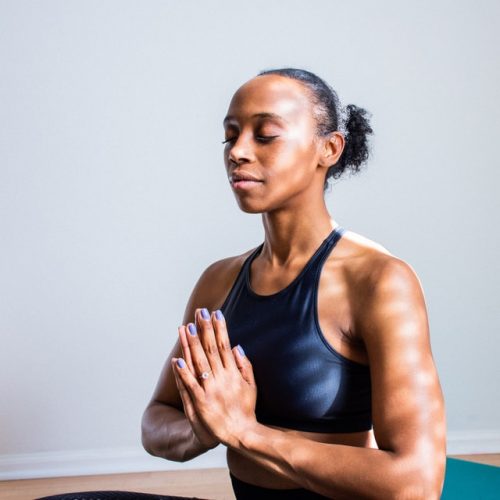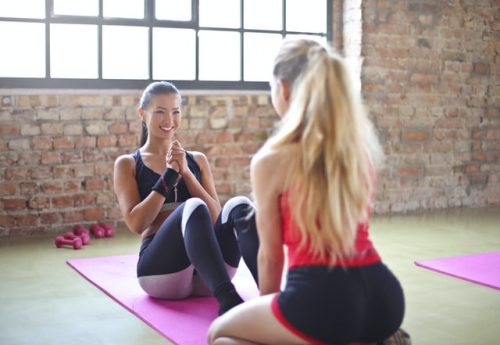The pandemic can cause you substantial stress due to several factors, including fear of contracting the disease and isolation due to imposed social distancing. This constant tension and lack of stress resilience can significantly affect your mental well-being and overall ability to function normally. Likewise, it can worsen the already existing chronic illnesses and psychological conditions. Let’s discuss how Pilates can support your mental health and how yoga for emotional healing helps.

In any case, it is crucial to find healthy ways to cope, such as taking care of yourself through proper diet and exercise. These are not only an excellent way to look after yourself, not only your physical health (lose weight) but also an effective way to uplift your overall well-being.
Like many other physical health activities, this low-impact exercise generally known to help alleviate stress and anxiety, among other things and is considered a mental workout as well. However, because of Joseph Pilates renowned workout – Pilates’ mind-body nature, it teaches you mindfulness and emotional awareness. As such, it can be an enormous aid to your physical and cognitive health.
Here is a guide to help you navigate distressing times like a pandemic with its health benefits.
How Does The Pandemic Affect Mental Health?
Let’s start off by addressing that it’s okay to feel whatever you feel in response to crises. Each of us has varying reactions to what is going on around us. It can differ depending on an essential component of numerous factors like conditions at home, our financial situation, or our surrounding community. Sometimes, it can be internal, like having pre-existing medical conditions or mental health disorders.
Going back to the point earlier about how pandemics can worsen and not improve cognitive or mental health, it’s just as important to be aware of a crisis that impacts our lives. Studies have shown that a global emergency, such as a fast-spreading disease, can heighten negative experiences such as loneliness, anxiety, depression, mind exhaustion, and sleeplessness.
Whatever the extent of your circumstance is, your situation is entirely valid. Understanding and knowing this and that you are not alone is a strong start to helping your cognitive wellness focus. Know that there are always ways to focus on treating depression and anxiety, as well as other psychological conditions.
How Does Learning Pilates Help To Cope During A Pandemic?

One way to focus and effectively cope or deal with mental health stress management, anxiety, and depression is to lean into the moment and sit with your emotions. Being conscious of your actions and even your thoughts is a skill that relaxation can teach you.
When you’re executing a self-care routine, you focus on your breathing in time with each movement. As you shift into a position, both your body and mind are engaged. Not only that, but you also gain the skill of what you are thinking and do away with noise, such as negative thoughts.
Alongside this, these low-impact pilates and yoga for physical and mental health classes train your mind and body to control your particular breathing pattern as you move. Breath control is a relaxation technique known to be effective when responding to stressful situations.
All in all, it directs and strengthens not only your body but also your mind by teaching you strategies that are also worthwhile beyond the mat.
Strengthen Your Connection With Yourself And Others
Stress and other negative emotions can indeed be a result of external factors like what is happening around us and the world. Other times, it is a result of the tension we carry in our bodies.
Existing physical conditions like chronic pain can also cause us discomfort and lead to stress. Practicing Pilates exercise involves an excellent means to relieve any tension in the body as exercise pumps blood because it is designed to stretch your core and help with muscle strength.
When you begin to feel better about yourself and have a better connection with your inner thoughts, you tend to be less agitated. Because you are less tense, you are likely to react more positively to others around you.
Enhancing mindfulness through maintaining connections is crucial during a global crisis that requires physical activity isolation. Having a sense of community and fellowship with other people is also an effective way to get you through a pandemic.
Mental Health Comfort In Pilates
When you get into the exercise, you may be doing the movements yourself in your own little space, but you are also one of many people who practice it. It means the opportunity to be part of a community that can provide assistance when it is most needed.

As with any recreational activity or hobby, people tend to come together to share their experiences and learn new things from others. You don’t necessarily have to talk about the events surrounding you. Still, just the fact that you share the same interests with another makes you feel less alone.
Conclusion
A pandemic is a severe crisis with issues that extend beyond the disease itself. These issues include the cognitive well-being of many. Many of us have different ways of coping, and while in isolation, we may find ourselves looking for new things to do.
Having the ability to empower yourself and experience encouragement from a community is crucial in getting through a pandemic. Many instructors and students alike share the same understanding of having a better mind state after getting into the practice.
Pilates does not only benefit your body physically but mentally as well. If you are having a hard time coping with the challenging situation that we are all in, it may be time for you to try and consider doing a relaxing workout.
Frequently Asked Questions
What are the psychological effects of Pilates?
How does this low-impact exercise benefit cognitive health?
Can this low-impact exercise release emotions?
What are the mental health benefits of Reformer Pilates?
What 3 aspects does this low-impact exercise focus on the most?
How has this low-impact exercise changed your life?
How does the relaxing workout benefit well-being?
Does this low-impact exercise release serotonin?
Does the relaxing workout balance stress hormones?
What are the disadvantages of this low-impact exercise?
Why is this low-impact exercise a mind-body?
What are the 3 cognitive wellness benefits of yoga?
Does it release trauma?
Does the relaxing exercise help with memory and brain training?
How does this low-impact exercise change your mindset?